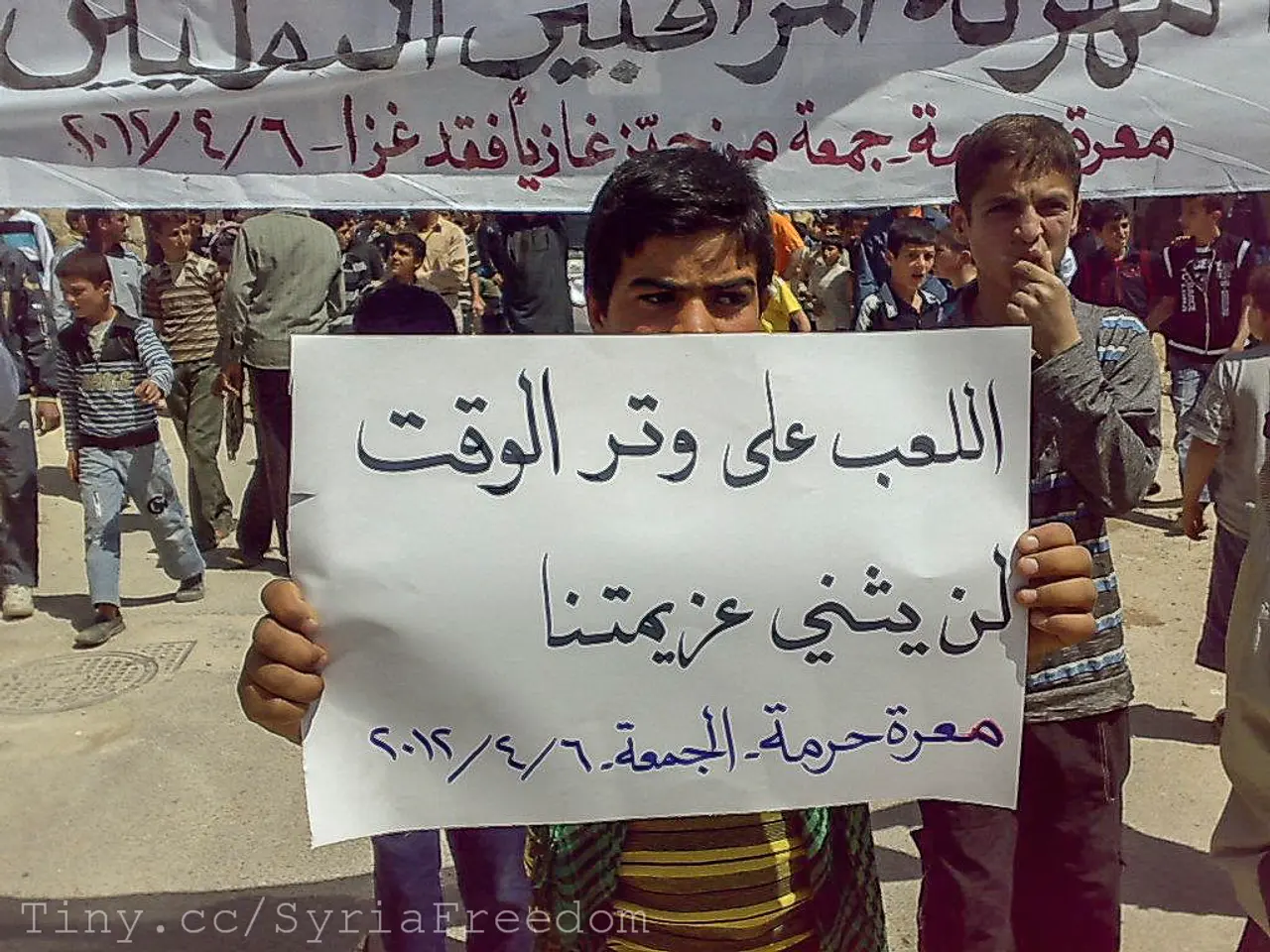Disagreement Erupts in Greece over Demonstration against an Israeli Vessel
In the heart of the Mediterranean, the relationship between Greece and Israel has evolved significantly over the years. While diplomatic ties were once cooler, today, the two nations share a close bond, particularly in economic, energy, and military cooperation.
Before 1990, Greece was typically pro-Arab, and Athens was the only European country to vote against the United Nations resolution of 1947 that led to the founding of the state of Israel. However, diplomatic relations were normalized in May 1990, when then-Prime Minister Konstantinos Mitsotakis officially recognized Israel.
Fast forward to the present day, and Greece's official political stance towards Israel remains strongly pro-Israel. The government, led by Prime Minister Kyriakos Mitsotakis and his ruling New Democracy party, has consistently endorsed Israel. Greek territory has been strategically used to shelter Israeli civilian planes during Iran threats in mid-2025. Despite international criticism, Mitsotakis refers to Netanyahu as “his friend.”
However, this government position contrasts sharply with growing public and activist opposition within Greece. Significant sections of Greek society, especially on the left, strongly support Palestinians. Approximately 30-34% of the general population shows pro-Palestinian sympathies, according to recent polls. This has fueled widespread protests and public outrage against Israel, including violent clashes against Israeli tourists and calls by activist groups for Greece to impose arms embargoes and end military cooperation with Israel.
Greek Foreign Minister Giorgos Gerapetritis has been trying to maintain a more balanced stance, remaining in contact with Palestinian leadership and insisting on his support for a two-state solution. He has also signed a resolution calling on Israel to end the conflict in Gaza and fulfill its humanitarian obligations to the civilian population, along with 28 other countries.
The dockworkers' union in Greece has refused to allow the port to become a base for any military actions. In a separate incident, dockworkers and activists tried to prevent the unloading of steel meant for military purposes in Israel.
Notably, Greek Health Minister Adonis Georgiadis condemned antisemitism in Greece on social media, emphasizing the importance of combating hate speech and discrimination.
Despite the protests, today's relationship between Greece and Israel is close. Opinion polls suggest that just under half of the population is neutral about the conflict in Gaza. Among those who are not neutral, support for Israel has declined after almost two years of fighting in Gaza.
Greek food and music are very popular in Israel, and many Greek artists regularly perform in Israel. The close cooperation between the two countries began long before Mitsotakis became prime minister and became closer around 2008.
In a recent incident, a protest took place on the island of Syros against Israeli tourists, due to concerns about Palestinians in Gaza. However, the cruise line ultimately decided the passengers shouldn't disembark at Syros and continued on its journey to Cyprus. Some passengers aboard the ship reacted angrily to the protest, waving Israeli flags and insulting the demonstrators.
In conclusion, while Greece's official political stance is pro-Israel and allied, social and political divisions within the country are leading to strong domestic protests and calls for a more critical position on the Gaza conflict. Despite this, the relationship between Greece and Israel remains strong, with cooperation in various sectors continuing to flourish.
- The Greek government, under Prime Minister Kyriakos Mitsotakis, maintains a pro-Israel stance, despite recent international criticism and domestic opposition.
- In contrast to the government's position, significant sections of Greek society, particularly on the left, express strong support for Palestinians, leading to numerous protests and calls for actions against Israel.
- Greek Foreign Minister Giorgos Gerapetritis has been attempting to maintain a balanced stance, engaging with Palestinian leadership and advocating for a two-state solution.
- Greek institutions, such as the dockworkers' union and certain activist groups, have taken steps to prevent military cooperation and arms supply to Israel, reflecting the domestic divisions on the issue.








